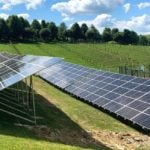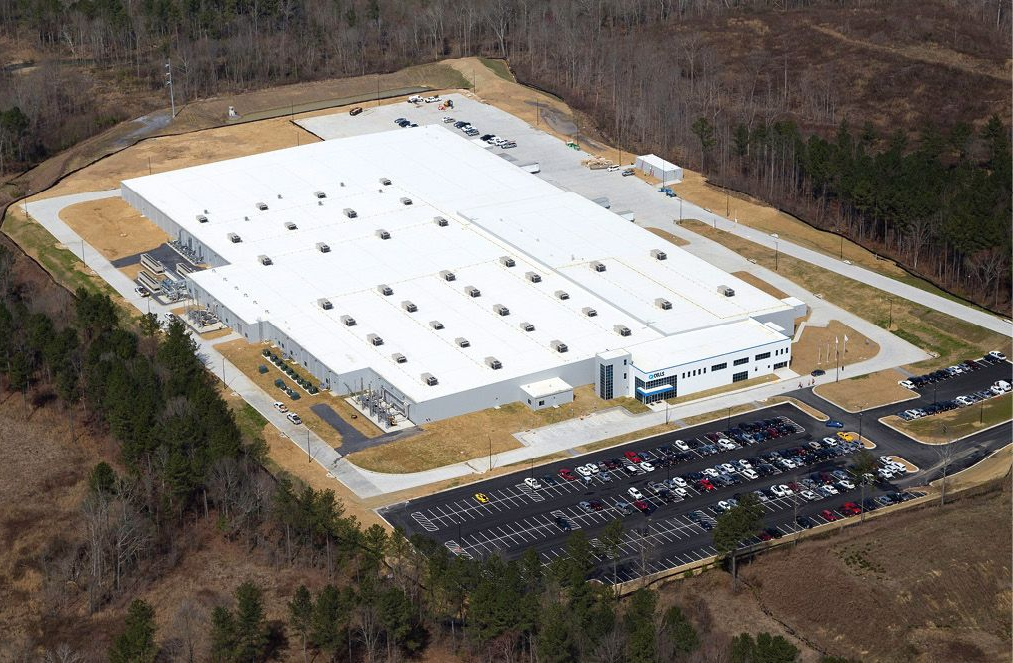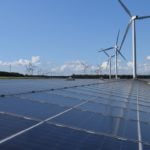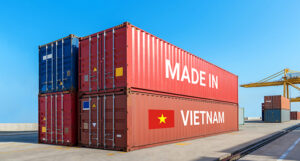Latest
Unirac provides PV mounting solutions for the residential and C&I markets. Image: Unirac via Twitter.
US solar racking producer Unirac has said that its mounting and racking systems can help solar developers qualify for Domestic Content tax credits.
Albuquerque-based Unirac produces US-made solar racking systems for both rooftop and ground-mounted PV modules in the residential and corporate & industrial (C&I) markets. The company secured a recapitalisation investment led by private equity firm Greenbelt Capital Partners in October 2022, which it said would support product development and supply chain resiliency.
This article requires Premium Subscription Basic (FREE) Subscription
Unlock unlimited access for 12 whole months of distinctive global analysis
Photovoltaics International is now included.
Regular insight and analysis of the industry’s biggest developments
In-depth interviews with the industry’s leading figures
Unlimited digital access to the PV Tech Power journal catalogue
Unlimited digital access to the Photovoltaics International journal catalogue
Access to more than 1,000 technical papers
Discounts on Solar Media’s portfolio of events, in-person and virtual
Or continue reading this article for free
The Domestic Content tax credit offers a 10% bonus on top of the 30% Investment Tax Credit (ITC) included under the Inflation Reduction Act (IRA). It has so far proved difficult to obtain for many silicon-based solar module manufacturers, as the bonus is based on a breakdown of the total cost of a product’s components. The current threshold is 40%, which is almost impossible for a solar module to obtain without a US-made solar cell, of which there are currently very few available. That threshold will rise to 55% next year.
However, a number of companies producing other parts of a PV system – like Unirac – could make it easier to obtain.
Recently US-based steel module frame manufacturer Origami Solar signed three new supply deals with US steel companies to support the production of its frames. The deals were signed with steel producers Welser Profile, in Ohio, and Priefert and Unimacts in Texas and Origami Solar framed them as a step on the road to supply security and sustainability for US PV.
Similarly, last week the US microinverter manufacturer Enphase Energy began shipments from its Arlington, Texas plant. It marked the first time Enphase produced its IQ8 microinverters in the US, having previously manufactured overseas and shipped to the US. Nextracker – the solar tracking product provider – has also been expanding a number of manufacturing lines in the US, most recently one in Nevada.
Earlier this year, the US Department of Treasury released guidance on the Domestic Content bonus which broke down a list of Manufactured Products and Manufactured Product Components and their relative values under the scheme. Whilst this makes the cost breakdowns clearer, US energy analysts Clean Energy Associates (CEA) said that most PV products “will still need a domestic cell or a [Cadmium Telluride] First Solar module to qualify” for the bonus.
Recently, calls have mounted for the inclusion of solar wafers in the Domestic Content scheme. The CEO of German wafer producer NexWafe, Davor Sutija, wrote for this publication about the potential benefits that including wafers in Domestic Content incentives could have on US solar deployments and costs. Industry trade body the Solar Energy Manufacturers for America (SEMA) coalition has also called for an expansion of the credits to include wafers as a way to strengthen upstream production in the US and ensure stability and demand for US products (Premium access).
San Francisco Bay Area, USA
PV Tech has been running an annual PV CellTech Conference since 2016. PV CellTech USA, on 8-9 October 2024 is our second PV CellTech conference dedicated to the U.S. manufacturing sector. The event in 2023 was a sell out success and 2024 will once again gather the key stakeholders from PV manufacturing, equipment/materials, policy-making and strategy, capital equipment investment and all interested downstream channels and third-party entities. The goal is simple: to map out PV manufacturing in the U.S. out to 2030 and beyond.
Understanding PV module supply to the European market in 2025. PV ModuleTech Europe 2024 is a two-day conference that tackles these challenges directly, with an agenda that addresses all aspects of module supplier selection; product availability, technology offerings, traceability of supply-chain, factory auditing, module testing and reliability, and company bankability.
The conference will gather the key stakeholders from PV manufacturing, equipment/materials, policy-making and strategy, capital equipment investment and all interested downstream channels and third-party entities. The goal is simple: to map out PV manufacturing out to 2030 and beyond.
PV Tech has been running PV ModuleTech Conferences since 2017. PV ModuleTech USA, on 17-18 June 2025, will be our fourth PV ModulelTech conference dedicated to the U.S. utility scale solar sector. The event will gather the key stakeholders from solar developers, solar asset owners and investors, PV manufacturing, policy-making and and all interested downstream channels and third-party entities. The goal is simple: to map out the PV module supply channels to the U.S. out to 2026 and beyond.
Read Next
Chinese solar module manufacturer Jinko Solar has secured two contracts to supply 150MW of modules to two solar PV projects in Algeria.
Green hydrogen and renewable energy developer Climate Impact Corporation (CIC) announced its intention last week (10 July) to develop two 10GW green hydrogen projects in South Australia and Northern Territory using solar PV.
China started conducting a trade and investment barrier investigation on the measures used in the EU’s Foreign Subsidies Regulation (FAR).
Swiss Utility BKW Energie AG has sign a power purchase agreement with food and beverage company Nestlé in Germany.
China is building two-thirds of new solar and wind projects globally as it is building 180GW of utility-scale of solar generation capacity.
The Pomerantz Law Firm has brought a class action lawsuit against Singapore-headquartered solar manufacturer Maxeon Solar Technologies concerning whether “Maxeon and certain of its officers and/or directors have engaged in securities fraud or other unlawful business practices.”
Subscribe to Newsletter
Most Read
Upcoming Events
1:00 PM (BST) / 2:00PM (CEST)
San Francisco Bay Area, USA
https://www.pv-tech.org/unirac-positions-us-made-solar-racking-for-domestic-content-credit/





